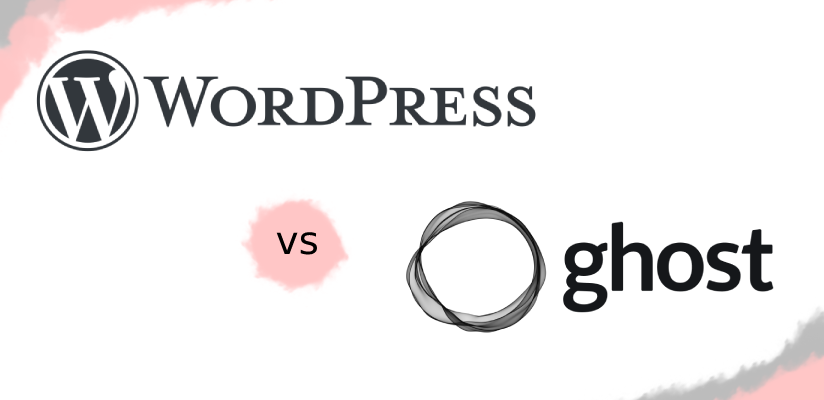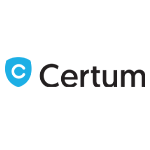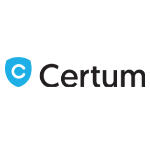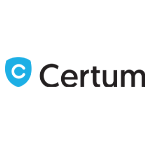
The majority of people who are interested in blogging or developing websites have probably encountered or used WordPress. With over three-quarters of the websites on the internet constructed using the platform, its popularity is quite widespread. However, there’s another platform called Ghost. Although still not quite as popular as the fame of WordPress but has managed to grab the attention of a lot of bloggers and other content marketing professionals.
What’s the difference between these two options and which is the better choice? If you’re just beginning your blogging journey or are looking for WordPress alternatives these are the questions that may be in your thoughts. In this article, we aim to discuss WordPress vs Ghost and we try to give you the answers you are looking for. First, let’s find out details about their unique capabilities, as well as information on how they could help you achieve the goals you have. Without further ado, let’s get acquainted with each.
What Is WordPress?
WordPress is an application for managing content and can be used to create websites and blogs. It was developed on the 23rd of March 2003, by Matthew Mullenweg and Mike Little. The two co-founded WordPress by making modifications to the blogging software that was discarded, catalog b2/b2. It is written with PHP, and WordPress is an open-source platform. This permits interested users to change the code in order to create additional apps and plugins that can be utilized to be used on WordPress websites. The versatility of WordPress is among the reasons that it has been regarded as the gold standard for blogging platforms. In addition, it has opened the gateway for custom WordPress website design that you can purchase or use freely.
WordPress which is based in San Francisco, California, is available in two different versions that are hosted WordPress.org and WordPress.com. If you choose to host your own WordPress, users can access the WordPress source software from WordPress.org and choose an appropriate web hosting provider that will host it. You can modify the source code to make anything you want, but you’ll need the ability to code for this task.
However, in the event that you choose to use WordPress.com, it is possible to host your site using this WordPress platform. This does not give users the same degree of freedom when it comes to altering the code source. In addition, you may not be able to use a custom WordPress website design. You can sign up for a paid or free account on WordPress and select an appropriate theme for your site or blog. For free you can receive all the essentials to set up a basic site as well as the paid plans come with extra features to meet your company’s goals.
After you’ve selected the plan and preferred theme you can begin creating your blog or your website immediately. The rest is handled for you from a design standpoint. The advantage is that you will be able to get your blog online within a short time, without the need to learn any programming on your own. However, unlike WordPress.org the limitations are in the amount you can customize your site’s design. So, if you want to have the freedom of having your own website, you have to buy WordPress hosting and download the WordPress source code from its official website.
What Is Ghost?
John O’Nolan, a former WordPress employee who was the driving force behind the creation of Ghost. Ghost was launched in 2013 and includes its location as a contact in Singapore. Its popularity in the blogosphere was triggered following the launch of its founder’s Kickstarter campaign to raise money in order to fund the venture. Similar to WordPress, Ghost is also built on open source software and is designed for writers and journalists who wish to write blogs. In reality, O’Nolan described Ghost as “just an online platform for blogging,” and criticized the complexity of WordPress (some say this is where WordPress vs Ghost started). Ghost is also like WordPress in that it’s available in two forms – Self-hosted as well as platform hosted.
If you want to host your own website, download the code from open source and then use it to create anything you like. When you opt for hosting you can have a lot of design and development work is handled by you, but there’s a limit to how much you can personalize your site in the event that you choose to try Ghost’s free service (although Ghost has fewer restrictions than WordPress when it comes to this aspect).
The similarities stop there, however, when it comes down to WordPress vs Ghost speed, Ghost lets users focus on their writing and publishing without needing to manage all the add-ons often connected with WordPress. It is also more efficient by design and comes with a variety of built-in functions that help to make it more SEO and web-friendly. Ghost also comes with an easier and more minimalist interface, which is well-liked by a large portion of its users.
The differences Between WordPress vs Ghost
It’s pretty obvious that Ghost and WordPress are alike in numerous ways. Then What may be the reason to pick either of them? Let’s take a look at each in-depth to discover their distinctions.
- The structure of HTML: Although WordPress and Ghost are alike in their functions, they use different engines underneath the hood. The programming language utilized to create Ghost was Node.js and PHP could be used to create WordPress.
- SEO adaptation: For your website to be SEO-friendly on WordPress you will have to add one or more of the plugins. In contrast, Ghost provides SEO functionality as a built-in, native feature. This may be helpful when it comes down to WordPress vs Ghost speed.
- Editor: WordPress comes with a user-friendly WYSIWYG editor that allows users to input content directly into the page. This is a great option for people who aren’t familiar with the writing process of HTML as well as CSS. The editor of Ghost utilizes markdown technology, like writing in HTML. It can be difficult for those with no prior knowledge of programming however it is simple to use and easy once you grasp the concept of it.
It is worth noting that although WordPress has a WYSIWYG (Visual) editor by default, it permits users to change into a text editor that is able to be used for HTML code. There is also the option of installing the markdown plugin for WordPress that will let you modify your blog in the same way as to how you edit your blog using Ghost.
- Interface for users: Ghost offers a simple and minimalist design when it comes to users’; interfaces are concerned. Dashboard, for example, is a small selection that includes “New Post,” “Content,” and “Settings.” The uncluttered interface minimizes distractions and allows the user to write or create their next blog post. With WordPress, its user interface, users when logged in provide more options, which include “Posts,” “Media,” “Pages,” “Settings,” “Tools,” “Plugins,” “Users,” etc. Additionally, many of these menu options can be opened to different sub-menus, which results in the WordPress dashboard becoming messier and confusing. But, getting around on WordPress isn’t difficult to master, as the various areas are simple to navigate.
- Multi-purpose: Ghost is pretty much a publishing platform that can be used for blogs as well as other written material created by bloggers, writers, and journalists. WordPress, though it began as a CMS for blogs, is now a more general-purpose platform that allows for the creation of a variety of sites, such as portfolio websites, e-commerce sites, portfolio sites corporate websites, and, of course, blogs.
- Performance: Ghost prides itself on being faster than WordPress. It is because of the latest software technology that comes out of the Node.js language that is used to build it, in addition to the fact that it’s smaller and lighter. WordPress speeds are affected by the addition of plugins that are typically required for additional functions like SEO and animation, social media, and so on. However, it is not to be forgotten that WordPress comes with caching plugins, like W3 TotalCache which can aid in improving site speed.
- The support community for HTML: Since WordPress has been around for a decade longer than Ghost and has a wider support community, it also has access to a larger and more extensive support community. It is more straightforward to receive answers to your questions and resolve issues that you may encounter using WordPress as opposed to using Ghost.
- Design and layout options: Designing your website using Ghost or WordPress is equally effective when you use the default theme. But, Ghost provides way fewer options than WordPress over and above the default layout options. This is because WordPress being in existence for a longer time and results in an infinite variety of themes to pick from. Additionally, to that, there are numerous plugins available for WordPress which can be used to alter the themes of WordPress and make your website appear exactly as you would like it to. Ghost also allows for customization but only if are proficient in programming or coding.
WordPress vs Ghost – Which Is Ideal for blogging?

If you are a writer trying to decide between Ghost vs WordPress for the process of setting up blogs, there are various options to take into consideration:
WordPress Pros
- Available in self-hosted and hosted versions.
- It is easy to set up and use
- There is no technical expertise needed for creating posts.
- Affordable options for low cost are can be found
- There is a myriad of themes available to select from
- Flexible – you can add modifications to your blog so it can serve multiple purposes
- There are many plugins available to personalize your blog (SEO social sharing and more.)
WordPress Cons
- It requires a constant update (including themes as well as plugins)
- Common security flaws are frequently being targeted by hackers
- The additional plugins and applications can reduce the speed of websites
- The user interface that is cluttered can be distracting for writers
- Certain plugins and features aren’t cost-free and could be a burden on the initial costs of hosting your blog.
- The free plan includes additional features and a variety of restrictions.
Ghost Pros
- Available in self-hosted as well as hosted versions
- Simple to set up and easy to use
- The simple pricing structure for bloggers
- Many built-in features eliminate the requirement for other plugins or applications
- A cleaner and lighter interface allows writers to concentrate on writing posts
- It is faster when compared with WordPress
- Security flaws are not a major cause for concern
Ghost Cons
- A little technical know-how is required for using markup
- Additional technical understanding is needed for customizing websites
- Not the best for anything else other than blogging
- There are fewer available themes
- Standard plans can be costly for those who aren’t yet ready to start the business
- The free plan is only valid for 14 days
Pricing
If you’re going to use the self-hosted versions of Ghost or WordPress and you do not need to think about paying any fees for either. You just need to install the code source, edit it to the specifications you wish to make, and then host your site elsewhere. When it comes to self-hosting for Ghost it is crucial to make sure that the host you select supports the Node.js language so that your website to function within their systems.
However, choosing one of Ghost or WordPress to host your website or blog implies that you’ll have a monthly charge. What are the differences between both in terms of price?
Ghost’s hosted options start at just $29 per month. At this cost you will get a range of features, such as Social sharing and SEO, as well as email and newsletter support and memberships and subscriptions that are paid, and much more. Ghost is offering a free 14-day trial.
However, when you buy WordPress hosting you just spend $4 each month, for your private website. There are additional levels of $8 per month for freelancers, $25 per month for small-sized enterprises, and $45 per month for stores that sell online. Similar to Ghost the company also offers an affordable plan however, it has basic options and includes advertisements. Each tier of WordPress comes with additional benefits that you might or might not require and therefore you should be cautious when selecting a plan that is suitable for your needs.
The two models of pricing are similar, the Ghost plan appears simpler and more straightforward since the majority of its features are included in the basic plan, but you’ll have to explore the various options for WordPress to find out which offers all the features you’ll need for your website.
Conclusion
Is Ghost an option better than WordPress? Is WordPress more effective? The simple answer is that it is dependent. If you’re a blogger that is focused on publishing blog posts and has an attractive, simple-looking site that is fast, Ghost appears to be the better option. But, if you’re thinking of expanding into different areas of business and wish to be able to customize your site to suit your needs and have more control over the design and layout, WordPress is likely the most suitable option.










Leave a Reply